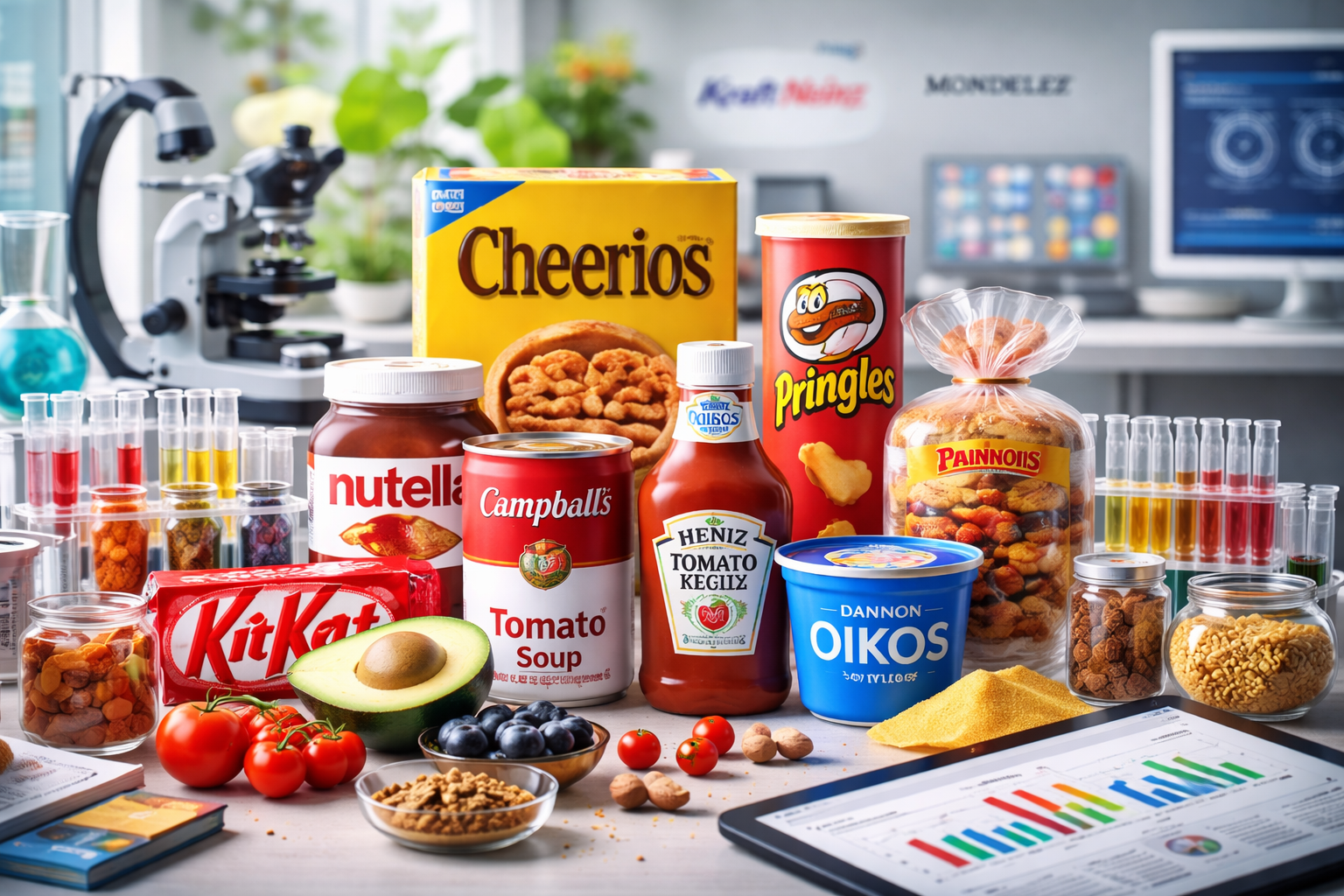CPG Sustainability: The Full Guide
CPG sustainability is a rising concern for consumers and businesses. Growing environmental awareness drives individuals to choose sustainable practices, increasing demand for eco-friendly consumer goods.
But what exactly does CPG sustainability mean? And how can businesses ensure that their products and processes are sustainable?
In this guide, we’ll explore CPG sustainability and how companies can adopt sustainable practices in their operations.
What is CPG Sustainability?
CPG sustainability, also known as consumer packaged goods sustainability, refers to the production and consumption of consumer products in an environmentally responsible manner.
This includes reducing carbon emissions, minimizing waste generation, conserving natural resources, and promoting ethical labor practices.
Sustainable CPGs are those that have been produced using sustainable materials and methods, taking into account their impact on the environment and society.
This includes everything from sourcing raw materials to packaging and transportation. In addition, the marketing of CPGs should also be aligned with sustainable values and messaging.
Why is CPG Sustainability Important?
There are several reasons why CPG sustainability is important:
Environmental Impact
The production and consumption of consumer products have a significant impact on the environment. Unsustainable practices can lead to deforestation, depletion of resources, pollution, and contribute to climate change.
Consumer Demand
With increasing awareness about environmental issues, consumers are actively seeking out sustainable products. A recent study found that 73% of global consumers would be willing to change their consumption habits to reduce their environmental impact.
Legislative Requirements
Governments around the world are implementing stricter regulations and policies to promote sustainable practices in various industries, including CPGs. Companies that do not comply with these regulations may face penalties and damage to their reputation.
How Can Businesses Implement Sustainable Practices in CPG Production?
There are several ways that businesses can incorporate sustainability into their operations:
Sustainable Sourcing
Businesses can source raw materials from sustainable sources, such as certified organic farms, responsibly managed forests, and suppliers that adhere to fair trade practices.
Efficient Use of Resources
Companies can adopt processes and technologies that minimize waste generation and optimize the use of resources such as water, energy, and materials.
Eco-Friendly Packaging
CPG companies can reduce their environmental impact by using materials that are recyclable, biodegradable, or made from recycled materials for their packaging.
Ethical Labor Practices
Businesses should ensure fair labor standards and safe working conditions throughout their supply chain to promote social sustainability.
Product Design
Companies can also focus on designing products with longer lifespans, incorporating eco-friendly materials, and reducing their carbon footprint.
Collaboration
Collaboration with other businesses, NGOs, and governments can help CPG companies develop innovative solutions for sustainable production.
Consumer Education
Conduction market research for CPG companies to better understand consumer behaviors and educate them on the importance of sustainable practices can encourage more responsible purchasing decisions.
Continuous Improvement
Businesses should regularly assess their sustainability practices and strive for continuous improvement towards more environmentally friendly operations.
Benefits of Adopting Sustainable Practices in CPG Production
Apart from contributing to a healthier planet, implementing sustainable practices in CPG production can also have several other benefits for businesses:
Cost Savings
Sustainable practices often lead to reduced waste, increased efficiency, and lower resource consumption, resulting in cost savings for businesses.
Improved Reputation
Consumers are becoming increasingly environmentally conscious and are more likely to support companies that prioritize sustainability. This can help businesses build a positive reputation and attract more customers.
Regulatory Compliance
Many governments are implementing regulations to reduce the environmental impact of businesses. By adopting sustainable practices, CPG companies can ensure compliance with these regulations and avoid potential penalties.
Increased Innovation
Adopting sustainable practices often requires businesses to think creatively and develop innovative solutions. This can lead to new products, processes, and business models that can give companies a competitive edge in the market.
Employee Engagement
Sustainability initiatives can help businesses engage their employees and create a sense of purpose within the company. This can lead to increased job satisfaction, motivation, and retention of talented employees.
What Are the Challenges of CPG Sustainability?
There are several challenges in achieving sustainability within the consumer packaged goods (CPG) industry. These challenges include:
Sourcing sustainable materials: One of the main challenges is focusing on sustainable food sourcing and packaging materials. This includes finding sustainable alternatives to plastic, reducing waste in the supply chain, and sourcing raw materials from ethical and environmentally responsible sources.
Balancing cost and sustainability: Another challenge is balancing the cost of sustainable practices with the overall profitability of a company. Sustainable materials and processes may be more expensive, which can impact profit margins, making it difficult for companies to invest in sustainability.
Meeting consumer demand: As consumers become increasingly aware of environmental issues, there is a growing demand for sustainable products. However, meeting this demand while also maintaining quality and affordability can be a challenge for CPG companies.
Changing consumer behaviors: In addition to meeting demand, CPG companies also face the challenge of changing consumer behaviors. Encouraging consumers to adopt more sustainable habits, such as recycling and reducing waste, can be a slow and difficult process.
Innovation and technology: Developing sustainable solutions often requires innovation and the use of new technologies. This can be a challenging part of a CPG strategy, especially for smaller companies with limited resources.
Regulations and policies: Government regulations and policies can also pose challenges for CPG companies looking to become more sustainable. These may include restrictions on certain materials or packaging, as well as environmental regulations that impact manufacturing processes.
Sustainable CPG Brands
The market for sustainable CPG products is growing rapidly, and many brands are leading the way in adopting sustainable practices.
Some of the top sustainable CPG brands include:
- Nestle: Committed to achieving zero net greenhouse gas emissions by 2050 and has set ambitious targets for sustainable packaging and responsible sourcing.
- Unilever: Has a sustainable living plan that focuses on reducing its carbon footprint, promoting sustainable agriculture, and improving the livelihoods of workers in its supply chain.
- Ben & Jerry’s: This ice cream company has been committed to sustainability since its founding, with initiatives such as sourcing fair trade ingredients and using renewable energy in their production facilities.
- Kraft Heinz: This company has made sustainability a key focus, with goals to reduce its environmental impact and improve the health of consumers through its product offerings.
- PepsiCo: To reduce its environmental impact by 20% by 2026, PepsiCo has implemented sustainable practices in its supply chain and packaging.
CPG Sustainability Trends
The rise of sustainable CPG brands is not just a fad, but rather a reflection of the shifting values and priorities of consumers.
As the challenges in CPG industry continue to grow, companies are expected to adapt and innovate to meet the demands of consumers who are increasingly looking for environmentally friendly and socially responsible products.
Some key sustainability trends in the CPG industry include:
Eco-friendly packaging
Consumers are increasingly concerned about the amount of plastic waste generated by traditional packaging. As a result, many CPG brands are investing in eco-friendly and biodegradable packaging materials to reduce their environmental footprint.
Transparent and ethical sourcing
With growing concerns over labor practices and environmental impact, consumers are demanding more transparency from brands about where their ingredients and materials are sourced. This trend has led to increased efforts towards ethical and sustainable sourcing practices by CPG companies.
Clean and natural ingredients
As mentioned earlier, there is a growing demand for clean and natural products in the CPG industry. This has led to a rise in brands that prioritize using natural and organic ingredients, as well as avoiding harmful chemicals and additives.
Circular economy
The traditional linear model of take-make-waste is no longer sustainable, prompting many CPG companies to adopt circular economy principles. This involves designing products to be reused, recycled, or repurposed at the end of their life cycle, reducing waste and conserving resources.
Sustainable supply chain
From sourcing to production and distribution, CPG companies are increasingly focusing on making their entire supply chain more sustainable. This includes initiatives such as reducing carbon emissions, using renewable energy sources, and promoting fair labor practices.
These trends are not only beneficial for the environment but also serve as a differentiator for CPG brands in a competitive market.
As consumers become more aware and conscious of their environmental impact, they are actively seeking out companies that align with their values and prioritize sustainability.
FAQs
CPG companies often adopt a sustainability strategy emphasizing responsible sourcing, reducing waste and carbon emissions, and developing sustainable packaging. They also focus on transparency and ethics in their supply chain.
Many CPG companies, like Procter & Gamble, Unilever, and Nestle, prioritize sustainability. They have taken steps to lessen their environmental impact and uphold ethical practices in their supply chain.
Sustainable practices in the CPG industry include using renewable energy, reducing packaging waste, promoting fair labor, and selecting sustainable ingredients. Companies can also lower environmental impact with recycling and upcycling programs.
Conclusion
The CPG industry has made significant strides in embracing sustainability, but there is still room for improvement.
As consumer demand increases and regulations tighten, companies need to continue prioritizing sustainable practices throughout their supply chain and product design.
With the ability of Tastewise, consumers can also make more informed decisions and support companies that align with their values.
Together, we can create a more sustainable future for the CPG industry and beyond.




